Iran’s Raisi Held Phone Conversation With Emir Of Qatar
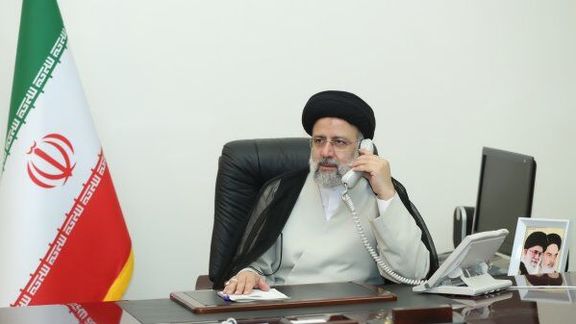
The Iranian President says developing ties with Qatar will boost regional and international cooperation between the two countries.

The Iranian President says developing ties with Qatar will boost regional and international cooperation between the two countries.
Ebrahim Raisi made the comments in a phone conversation with Qatari Emir Sheikh Tamim bin Hamad Al-Thani who had called to felicitate him on Eid al-Adha.
Raisi also appreciated the efforts of the Emir and Prime Minister of Qatar in advancing joint plans and agreements with the Islamic Republic of Iran.
Al-Thani congratulated the Iranian President and the Iranian people on Eid al-Adha and expressed willingness to boost economic cooperation.
Last week, European Union foreign policy official Enrique Mora and Iran’s chief nuclear negotiator Ali Bagheri-Kani held meetings in Qatar in what many believed to be related to issues pertaining to disputes with the United States.
Since September, the US has demanded an end to Iran’s weapons supplies to Russia that has included hundreds of Kamikaze drones used against Ukrainian military and civilian targets.
In February, US Special Envoy for Iran Robert Malley met with the Qatari foreign minister in Washington over efforts to kickstart the stalled talks to revive the 2015 nuclear deal, Qatari sources said.
Late in January, Al Thani visited Tehran where he delivered messages from world powers that are party to the Joint Comprehensive Plan of Action, particularly the US which does not have direct contact with the Islamic Republic.

In a rare public criticism, Iran’s Supreme Leader has admitted that the nation has lost trust in the judiciary, blaming it on malpractice and media representation.
“There is a small minority who abuse their position and tarnish the image of the judiciary in the eyes of the people,” Khamenei said in a revealing meeting with judiciary officials Tuesday.
He called on authorities to fight corruption within the judicial system and warned that "corruption is contagious". He said: "When corruption enters a system, this disease spreads. It is increasing day by day."
Khamenei said the media is partially to blame, tarnishing the judiciary's reputation further, refusing to acknowledge the heavy-handed and brutal punishments it has been handing down to civilians since the protests began in September in the wake of Mahsa Amini's death in morality police custody.
Khamenei's words contradict the fact that he controls the religious judiciary that is only accountable to him and plays the role of both prosecutor and judge. The courts in Iran are not independent, but part of the large bureaucracy known as the Judiciary, whose head is appointed by the Supreme Leader,
As “one of the main pillars in the establishment of the Islamic republic,” he said instability in the judiciary can lead to disruptions in the entire regime as he urged his inner circle to tighten up the flailing system.
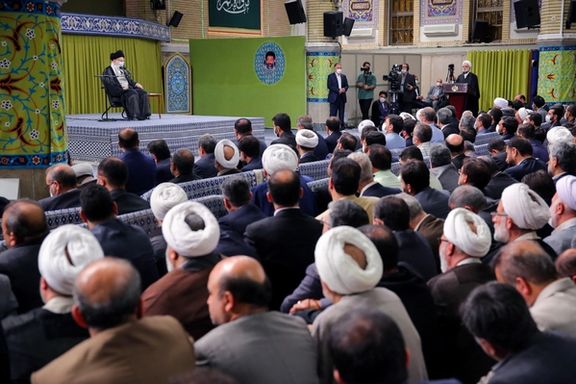
Political pundit Rouhollah Rahimpour told Iran International that the main duty of the judiciary has become defending the regime against the people and cracking down any voice of dissent.
He called the distrust of the judiciary a natural consequence "when the judicial system does not pursue justice" and only works as a tool in the hands of the regime to stifle criticism and quash protests.
The regime used overwhelming force with military weapons in its crackdown on the protests since September, killing more than 500 civilians and arresting tens of thousands more. Hundreds of other protestors suffered hospitalization and permanent injuries, including the loss of eyes when shotgun pellets were fired at the faces of demonstrators.
After the wave of nationwide protests which has still yet to subside, the Iranian regime has embarked on a wave of executions which has seen dozens of prisoners hanged this year.
Iran's Chief Justice Gholamhossein Mohseni Ejei claimed Monday that scores of Iranians only took part in protests due to foreign influence, undermining the strength of the Woman, Life, Freedom movement which has seen hundreds of thousands of Iranians calling for the end of the brutal dictatorship.
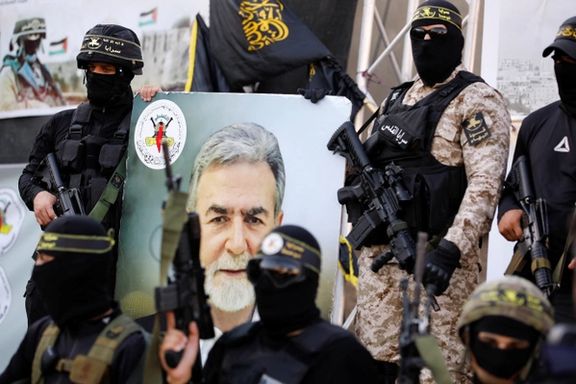
The Palestinian Islamic Jihad (PIJ) is buying weapons and loyalty in the West Bank using Iranian money, a Palestinian security source said.
The PIJ has established several armed cells and recruited dozens of gunmen in the northern West Bank, specifically in Jenin and Nablus. “The PIJ has become a dominant force in the northern West Bank, largely thanks to the financial aid it receives from Iran," a source told Israel's Jerusalem Post. “Islamic Jihad is using Iranian money to buy weapons and loyalty in the West Bank [and] the organization is paying high salaries to its members.”
Palestinian Islamic Jihad has stepped up its activity over the last year, largely thanks to extra funding from Tehran, including an incident in April in which dozens of rockets were launched in a cross border attack on Israel from Gaza, Syria and Lebanon. Last August, the PIJ unleashed almost 2,000 rockets and mortars in three days of fighting.

The PIJ, like Hamas, which controls the Gaza Strip, have become full-fledged Iranian proxies, receiving Iranian funding, training, sophisticated equipment, and, most importantly, Tehran’s instructions on their confrontation with Israel. Last year, then defense minister Benny Gantz claimed that the PIJ was receiving tens of millions of dollars from Tehran. This week the group's leaders met with President Raisi, among others, in a show of force against Israel.
The evolution from guerrilla-terrorist militias to armies results from a long process initiated by Tehran with the active assistance of Hezbollah in Lebanon. The escalating events in recent months have shown the ongoing coordination and consultation among the top leaders of Hamas, Hezbollah and PIJ in Beirut, Damascus, and Tehran, with the aim of creating a united front facing Israel from Iran-supported Lebanon, Syria, Gaza, and the West Bank.
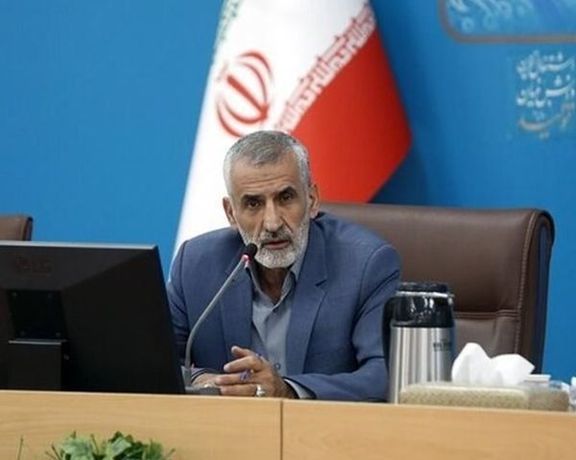
Iran's Deputy Interior Minister Majid Mirahmadi has held talks with Qatari officials in Doha to expand security cooperation between the two countries.
According to the IRGC-affiliated Fars News Agency, the two sides discussed security and law enforcement cooperation and holding of a joint security commission in Iran.
The release of Iranian fishermen and their boats, which Iran claims had entered the waters of Qatar due to ignorance of border limits, was raised, and the Qatari side agreed to their release. Bilateral solutions to tackling drug smuggling in the area were also discussed.
Iran and Qatar signed several bilateral deals last year during a visit by Iranian President Ebrahim Raisi to Doha to attend the Gas Exporting Countries Forum. Raisi's visit was the first to Qatar by an Iranian president in 11 years.
Qatar has strong ties with Iran, with which it shares a giant gas field. Tehran supported Doha after Saudi Arabia and its Arab allies imposed a boycott on Qatar in mid-2017 in a dispute over its links with Islamist groups and with non-Arab Turkey and Iran.
Recent restoration of diplomatic relations between Saudi Arabia and Iran signaled a new policy by the Persian Gulf Sunni Arab states for closer regional cooperation.
A deal brokered by China in March ended a diplomatic rift between Iran and Saudi Arabia, and re-established relations following years of hostility.

As tensions continue in the Persian Gulf, an IRGC commander claims the US feels the IRGC's naval authority in the region, including the trouble stricken Strait of Hormuz.
Admiral Alireza Tangsiri, the commander of IRGC navy, made the comments on Tuesday during a ceremony in the southern Khuzestan province.
“We, the soldiers of the Revolutionary Guards, perform our duty to defend the nation of Islamic Iran till the last drop of our blood,” he said.
His statements were made after senior officials from 22 nations and the GCC held a multilateral meeting in Bahrain this week to discuss the current maritime security environment and ways to further enhance that in the region which has seen numerous incidents as Iran flexes its muscles in one of the world's busiest shipping lanes.
After the meeting in Bahrain, the Spokesman of the US State Department, Matthew Miller said in a tweet on Tuesday that “the United States and like minded partners in the Middle East and from around the world are committed to enhancing maritime security in across the Middle East region and ensuring freedom of navigation through the region’s vital waterways.”
Earlier this month, the US Navy reported that Iranian military speed boats were "harassing" a commercial vessel in the Strait of Hormuz. The IRGC claimed to have assisted the vessel.
Iran has hundreds of fast attack boats that for years not only have harassed civilian vessels but, on many occasions, have come dangerously close to US and other warships in a show of force.
Iranian attacks on cargo vessels in the Strait of Hormuz, the shipping lane that carries about a fifth of the world’s oil, have increased over recent years and raised tensions between the US and Iran, in addition to other Western and Persian Gulf nations.
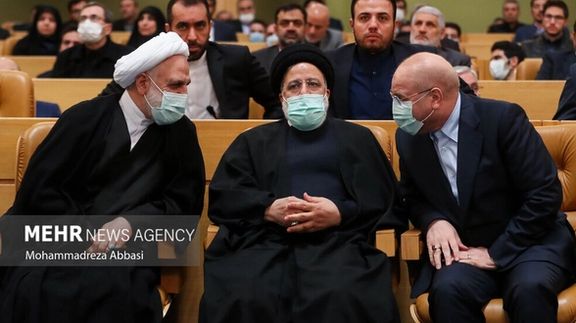
A former senior intelligence official and a founder of the ministry of intelligence, says Iran was once a semi-democracy but it has turned into a non-democracy.
Saeed Hajjarian, known as the most senior theoretician of reforms in Iran has said in an interview with reformist daily Etemad that “the sooner the Iranian government resigns the better.” He added that “the presence of this government and the school of thought it represents is a major loss for the nation.”
He said: “I am not suggesting that [President Ebrahim] Raisi should be replaced by a reformist figure. What I am suggesting is that the same conservatives at the Majles and in the government should sit together and think of an efficient replacement.”
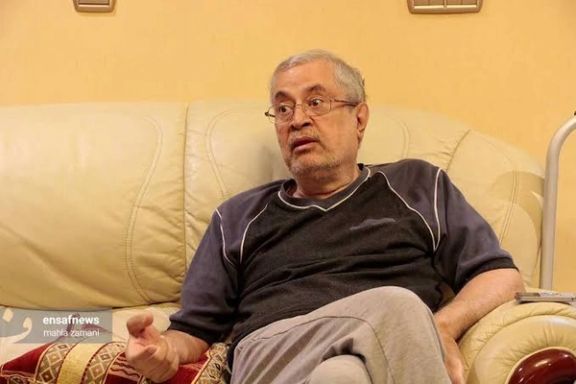
Hardliners loyal to Supreme Leader Ali Khamenei have pushed reformists out of the parliament (Majles) and the presidency since 2020, monopolizing all political power. However, as Iran’s economic situation has worsened partly because of US sanctions, reformists have become more vocal, demanding a chance to return to government positions.
“The Iranian opposition groups outside Iran are preoccupied with themselves. Instead of thinking of being an alternative to the current government, they are fighting with each other. On the other hand, they have been far from Iran for a long time and do not know the country’s problems, so their rhetoric sounds irrelevant,” he claimed.
While there have been disagreements among opposition activists, many in Iran still expect solutions from their compatriots who can freely engage in politics in Western countries.
In fact, some opposition figures, such as exiled Prince Reza Pahlavi have notable following in Iran, although there are no reliable polls to judge the exact measure of his popularity.
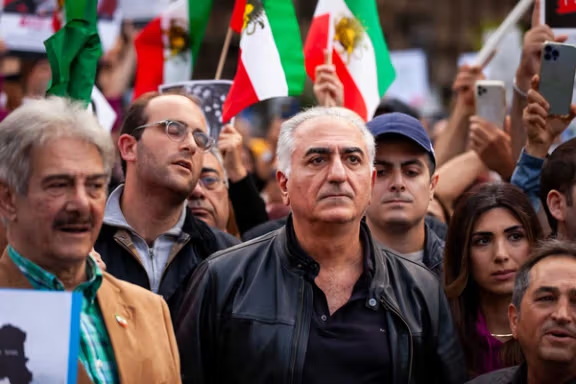
As a key political figure who for the first time spoke about an alternative to the current political system, Hajjarian pointed out that the only choice is “absolute republicanism” with no adjective to characterize it.
“I believe we cannot vote for an absolute monarchy or a hereditary form of succession or an Islamic Emirate. All of these are against the international human rights charter,” he claimed, ignoring the fact that many democratic countries are constitutional monarchies. He further pointed out that a benevolent dictatorship is like a poison for Iranians.
As a regime insider, it is not surprising that the former intelligence officer spoke against monarchy at a time when many Iranians look back with nostalgia to the pre-1979 period under the Pahlavi dynasty.
Hajjarian also failed to mention that the Islamic Republic is based on the unquestionable rule of a cleric, the Supreme Leader. Also, the republicanism he is advocating is impossible to establish within the current Islamic constitution, which reserves the final say to the Supreme Leader.
In another part of the interview, Hajjarian characterized the government of former President Mahmoud Ahmadinejad as “rich populism” and described the Raisi administration as a populist government that does not have money.
He said some of the outstanding problems in Iran such as the crisis of the pension fund and discrimination against women can create a political tremor and the government knows that it is incapable of coping with them.
Hajjarian said that borderlines between reformism and other political groups are blurred and most of those known as reformists are pseudo-reformists who are simply trying to find a way out of the current impasse.
Nevertheless, he argued that reformists are the only group with a plan, while critics say that they were in power for 16 years in the past 26 years and were not able to change the nature of the regime.
The former intelligence officer said Iran is in a state of suspension. If the situation worsens and the economic pressures become unbearable, Iran might show more flexibility toward the West.